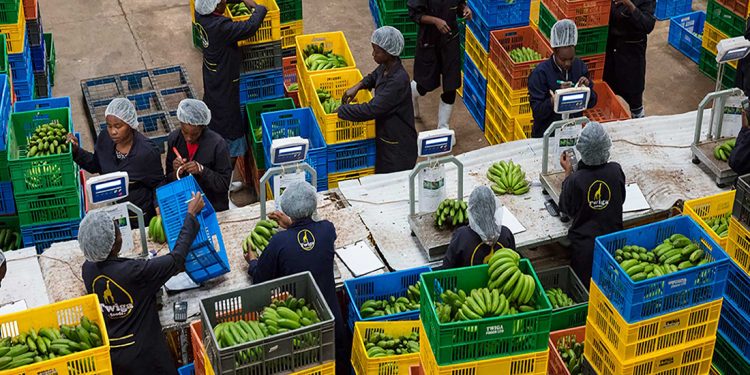Business confidence in Kenya rose to an 11-month high due to increased demand and improved business confidence, coupled with increased stockpiling efforts by companies.
In the latest Purchasing Managers Index (PMI) survey, Stanbic Bank Kenya economist Mulalo Madula said private sector activity held up well into January, with new businesses rising for the fifth consecutive month on the back of better operating conditions.
This led to stockpiling efforts and also spurred higher output and consequently growing employment, says the report.
“Notably, the influx of new businesses was the strongest in 11 months, reflecting improved marketing efforts,” Stanbic Bank Kenya economist Mulalo Madula.
The monthly study that covers the January 2023 period placed the headline index at 52.0, creeping by 0.4 from December’s 51.6 figure.
Growth in the business confidence was buoyed by domestic demand alongside a modest recovery in exports, likely to be boosted by the floriculture exports, which typically increase in February to accommodate the high demand for flowers during Valentine‘s day that is traditionally celebrated every February 14 and a potentially strong Euro.
However, the Standard Bank economist Madula cautioned that accelerated inflationary pressures caused by a higher tax burden and a depreciated shilling pushed purchase prices and output charges high and were likely to depress the economy.
He said that lack of cash and weak household demand would linger for a while leading to a situation with many firms struggling. On Monday, the shilling was trading at KES 124.66 to the US dollar, which shows an increasingly weakening shilling.
The business community is also staring at the third tax review in under a year if the proposal to review the Excise Duty (Excisable Goods Management System) Regulations 2017 (Amendment) Regulations 2023 by the Kenya Revenue Authority (KRA), currently undergoing public participation is approved.
The proposal seeks to increase stamp duty on alcohol, Cigarettes, juice and beauty products by between KES 2.20 and KES 5 and comes barely four months after a 6.3 per cent inflation adjustment that impacted the cost of cosmetics, confectionary, bottled water, alcoholic and non-alcoholic beverages, tobacco and nicotine products.
Earlier, there was an increase in excise tax by between 10 per cent and 20 per cent through the Finance Act 2022, drawing the ire of Kenyan manufacturers, who called for a more predictable environment.
“Persistently, high inflation has raised concerns that price pressures will remain elevated and weigh on economic activity and consumption for some time,” Mulalo Madula.
As of January 2023, Kenya’s inflation rate was 9 per cent, the lowest since August 2022, compared to 9.1 per cent in December.




